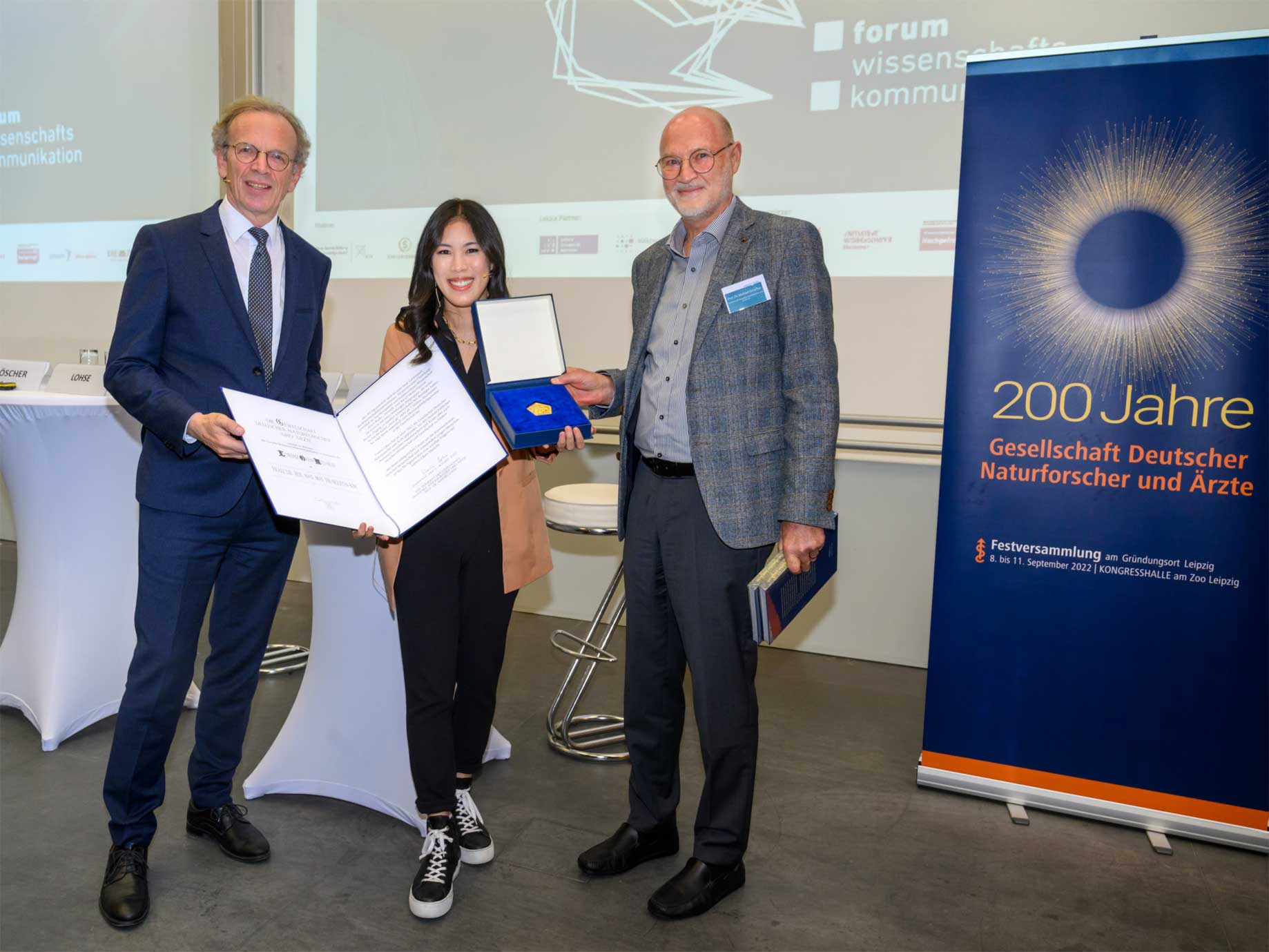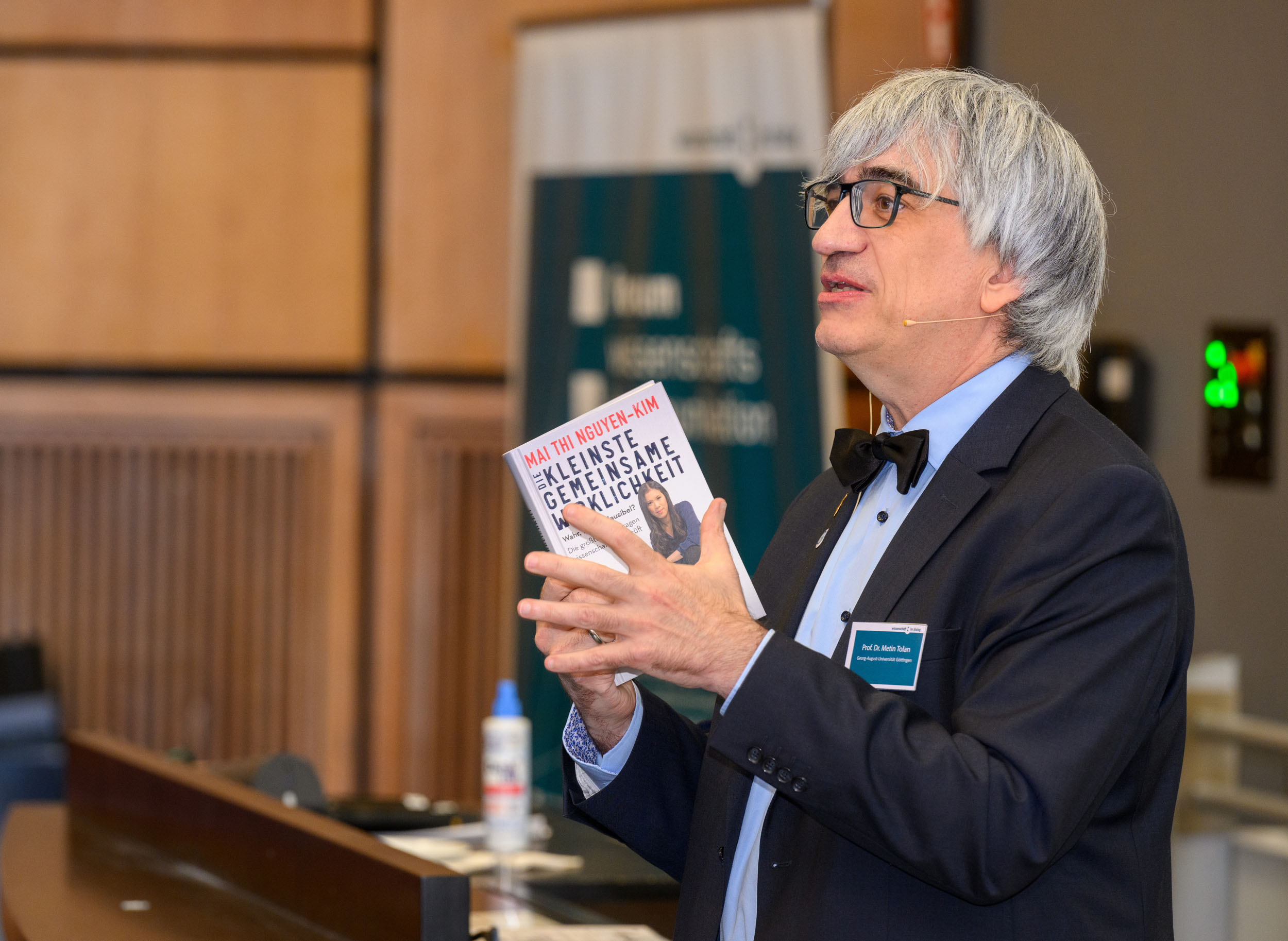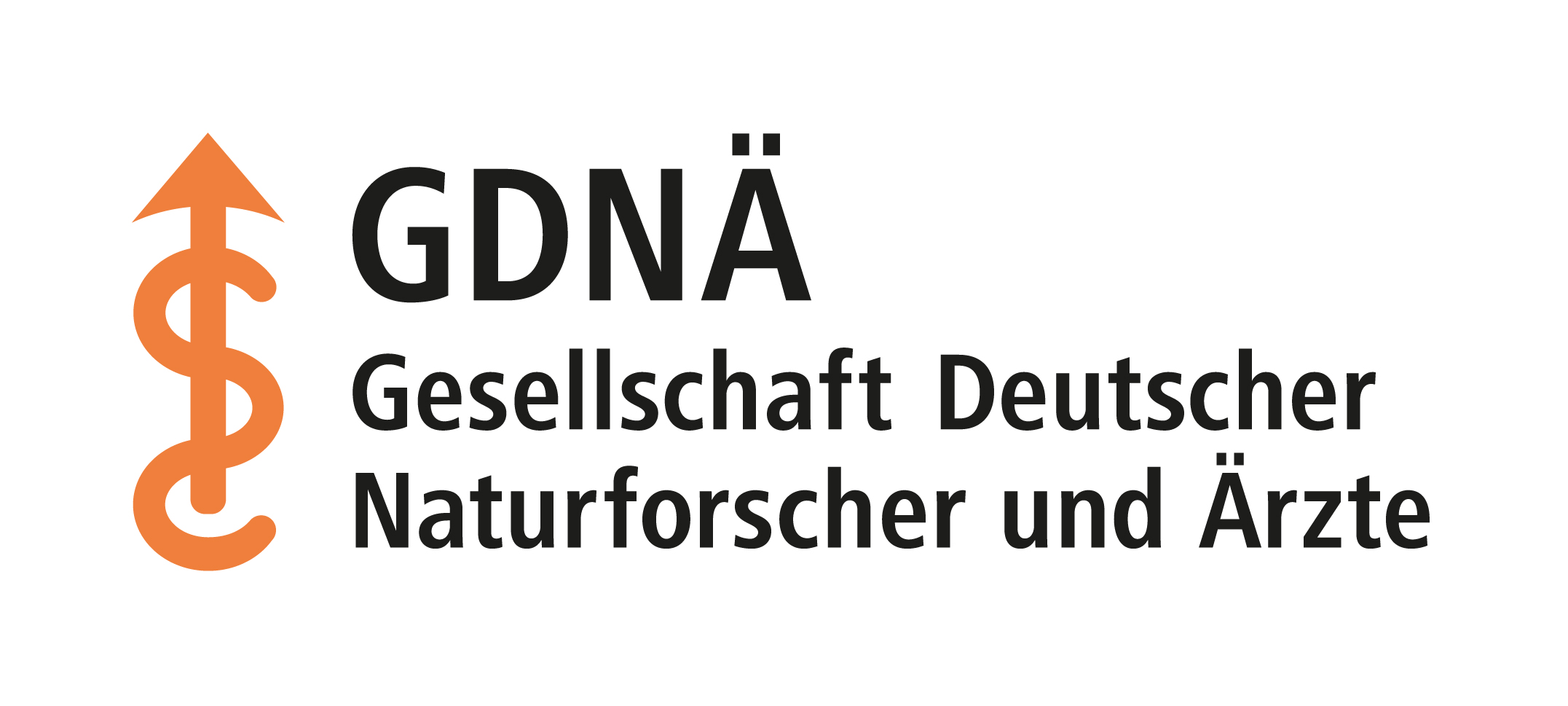AWARDED
Mai Thi Nguyen-Kim honoured with Lorenz Oken Medal

© David Ausserhofer/Wissenschaft im Dialog
Connected via video: Mai Thi Nguyen-Kim at the 2022 Festival Assembly in Leipzig.

© David Ausserhofer/Wissenschaft im Dialog
The laudatory speech was given by Professor Metin Tolan, physicist, President of the University of Göttingen and Communicator Award winner.

© David Ausserhofer/Wissenschaft im Dialog
Award winner Mai Thi Nguyen-Kim on 5 October 2022 in Hanover.
About the person
Mai Thi Nguyen-Kim’s parents come from Vietnam. Her father is a chemist and worked at BASF. After graduating from high school, she studied chemistry at the Johannes Gutenberg University in Mainz and completed a research stay at the Massachusetts Institute of Technology. During her studies, she was a scholarship holder of the German National Academic Foundation. In 2017, she attained her doctorate on a topic in polymer chemistry at the University of Potsdam. During her doctoral studies at RWTH Aachen University and the University of Potsdam, Nguyen-Kim spent a research year at Harvard University and the Fraunhofer Institute for Applied Polymer Research.
In 2015, she launched the YouTube channel The Secret Life of Scientists to challenge stereotypes about (natural) scientists and communicate science topics to a young audience. In October 2016, her YouTube channel schönschlau went online. For a time, she hosted the channel Auf Klo and learning videos for the subjects chemistry and mathematics in the format musstewissen. Her channel schönschlau was renamed maiLab in 2018. Nguyen-Kim is a moderator in the science-in-dialogue project Die Debatte (The Debate) and is part of the Terra X Lesch & Co. team with Harald Lesch, Jasmina Neudecker and Suzanna Randall. From 2018 to 2021, she was on the presenter team of the programme Quarks.
Nguyen-Kim has published two books, Funny, All Chemical! (2019) and Die kleinste gemeinsame Wirklichkeit (2021), a title that reached number one on the Spiegel bestseller list in the same month of publication.
